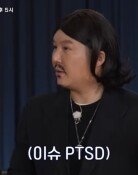2 Think Tanks Greatly Influence New Govt
2 Think Tanks Greatly Influence New Govt
Posted January. 28, 2008 08:39,
As the Lee Myung-bak administration forms a new Cabinet and selects secretaries, the president-elects two policy think tanks are emerging as crucial resources.
These think tanks, which created policies in critical areas such as the economy, diplomacy, education and welfare during Lees campaign period, are said to be the most suitable for materializing his vision into policies and implementing them.
Former staff members at the Global Strategy Institute led by Seoul National University professor Yoo Woo-ik are often mentioned as favorites for important posts. President-elect Lee founded the think tank as the East Asia Institute in the mid-1990s. Several of its employees are playing critical roles in the presidential transition committee and Lees secretariat.
Yoo will likely get the nomination as Lees first presidential chief of staff. He is not on the transition committee, but reportedly often visits Lees office for in-depth discussions about appointments and the direction of national policies.
The think tanks policy division chief, Gwak Seung-joon, is a member of the committees planning and coordination division and a close policy adviser to the president-elect. Reports say Gwak could be the next chief presidential secretary for the economy.
Committee members who used to work for the think tank as researchers are also favored candidates for the new administration.
Hyun In-taek, President-elect Lees diplomacy adviser, is a leading candidate to head the Foreign Affairs and Unification Ministry. Hong Doo-seung, a member of the transition committees diplomacy, unification and security division, could be the next defense minister.
Hyun is also a potential nominee for chief presidential secretary for diplomacy and security. Nam Joo-hong, a member of the state affairs division, and Lee Dal-gon, a member of the legal administration division, have been mentioned as potential Cabinet members.
Staff at the think tank who work with the committee and Lees secretariat are expected to play key roles in the new administration. Kim Yeong-woo, a policy director of the Global Strategy Institute and vice chief of policy planning under the secretariat, is planning to run in the April general elections in Pocheon and Yeoncheon, Gyeonggi Province. Moon Hyung-wook, a fellow researcher and a member of the committees planning and coordination advisory, is expected to work in the new administration after directly reporting policies to President-elect Lee during his campaign.
Researchers at the Barun Policy Institute, the second main policy think tank for Lee, are also known as favorite candidates for the new government.
Ahn Byeong-man, former president and a board director of Hankuk University of Foreign Studies, was initially considered a candidate for prime minister. Barun President and transition committee member Baek Yong-ho is said to be a candidate to head the newly created finance committee and the position of chief presidential secretary for the economy.
Yoo In-chon is a strong candidate for culture minister. He is an advisory member of the society, education, and culture division, a board director of Barun, and someone close to President-elect Lee.
Choi Jae-deok, a member of the committees second economy division and a Barun board director, gave real estate policy advice to Lee during his presidential campaign. Choi is considered a candidate to head the Homeland and Maritime Affairs Ministry.
Barun board director Lee Jong-chan, a former head prosecutor of the Seoul High Prosecutors Office, has been mentioned as a candidate for justice minister.
ddr@donga.com






![“잠만 자면 입이 바싹바싹”…잠들기 전에 이것 체크해야 [알쓸톡]](https://dimg.donga.com/c/138/175/90/1/wps/NEWS/IMAGE/2026/02/23/133404748.3.jpg)
